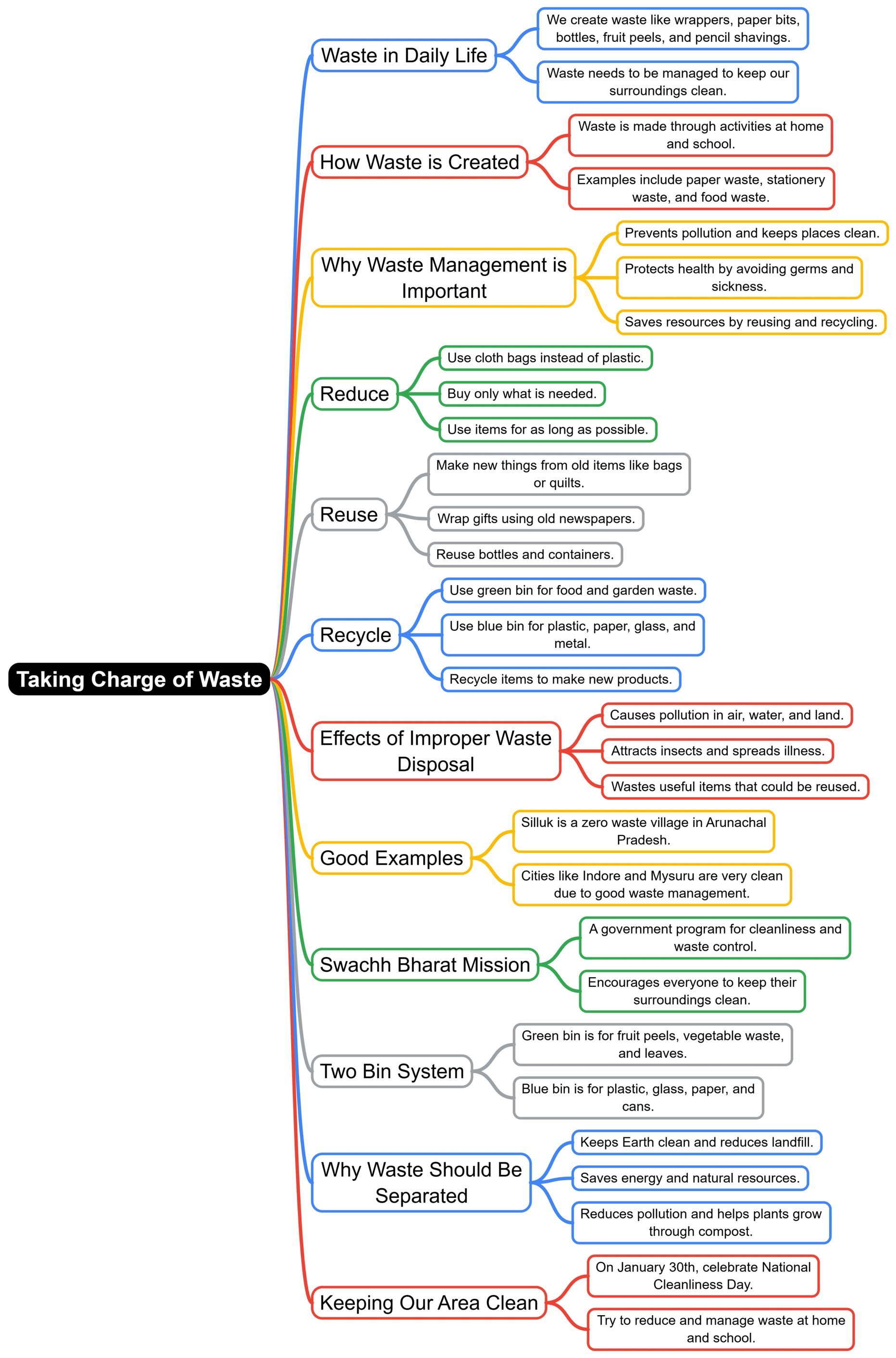Class 3 Exam > Class 3 Notes > EVS Class 3: The World around us (Our Wondrous World) > Mind Map : Taking Charge of Waste
Mind Map : Taking Charge of Waste | EVS Class 3: The World around us (Our Wondrous World) PDF Download

The document Mind Map : Taking Charge of Waste | EVS Class 3: The World around us (Our Wondrous World) is a part of the Class 3 Course EVS Class 3: The World around us (Our Wondrous World).
All you need of Class 3 at this link: Class 3
|
30 videos|128 docs|14 tests
|
FAQs on Mind Map : Taking Charge of Waste - EVS Class 3: The World around us (Our Wondrous World)
| 1. What is waste management and why is it important? |  |
Ans.Waste management refers to the collection, transportation, processing, recycling, and disposal of waste materials. It is important because it helps protect the environment, public health, and promotes sustainability by reducing pollution and conserving natural resources.
| 2. What are the different types of waste? |  |
Ans.The different types of waste include solid waste (such as food scraps and packaging), liquid waste (like wastewater from households and industries), and hazardous waste (which can be toxic or harmful, such as chemicals and batteries). Understanding these types helps in proper disposal and recycling methods.
| 3. How can individuals contribute to reducing waste? |  |
Ans.Individuals can contribute to reducing waste by practicing the 3Rs: Reduce, Reuse, and Recycle. This includes minimizing the use of disposable items, choosing reusable products, and properly sorting recyclables to ensure they are processed correctly.
| 4. What role does recycling play in waste management? |  |
Ans.Recycling plays a crucial role in waste management by converting waste materials into new products, which helps conserve resources, reduce landfill waste, and decrease pollution. It also promotes a circular economy where materials are reused rather than discarded.
| 5. What are the benefits of composting organic waste? |  |
Ans.Composting organic waste has several benefits, including reducing the amount of waste sent to landfills, providing nutrient-rich soil for gardening and agriculture, and decreasing greenhouse gas emissions. It is an effective way to recycle food scraps and yard waste.
Related Searches




















